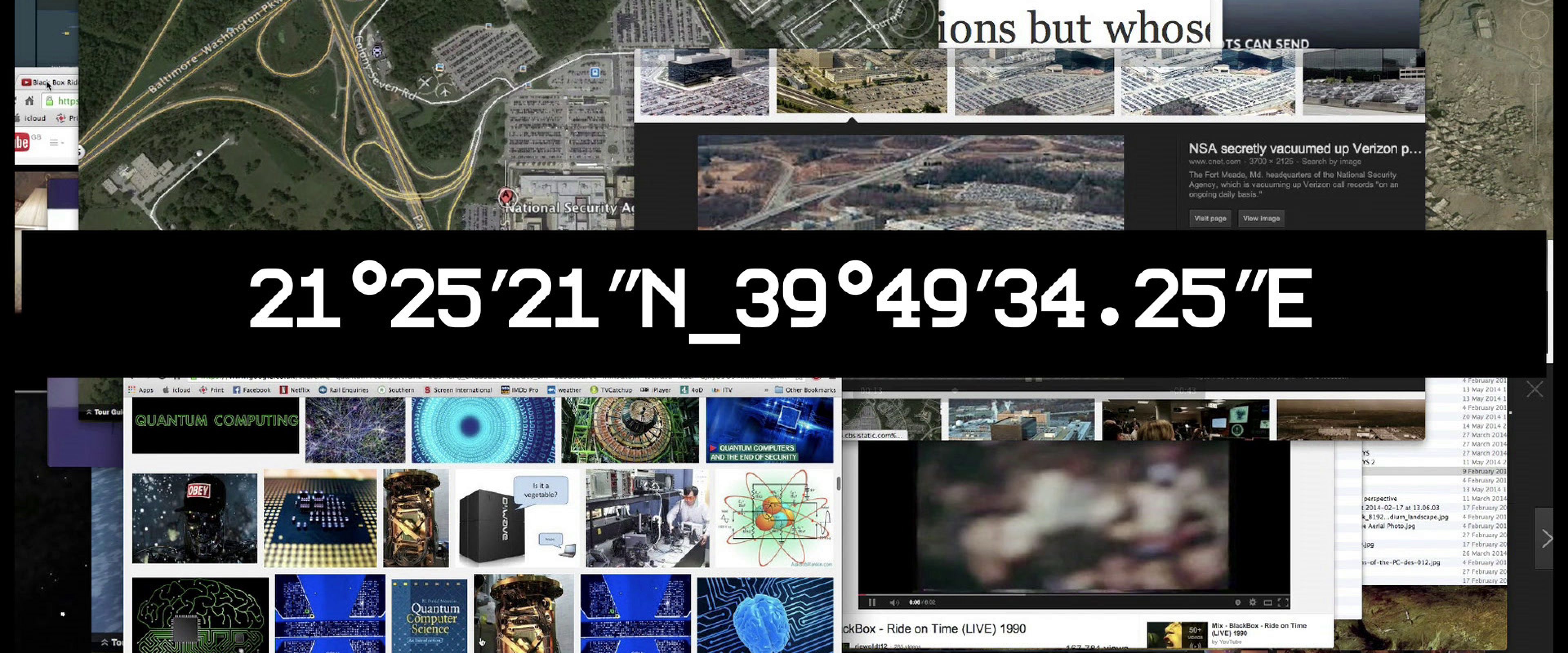Digital Bodies is organized by the Eli and Edythe Broad Art Museum at Michigan State University and curated by Carla Acevedo-Yates and Steven L. Bridges, Associate Curators. Support for this exhibition is provided by the Alan and Rebecca Ross endowed exhibitions fund.
About the Exhibition
A black box is a device that performs complex functions, but whose internal mechanisms are unknown or poorly understood. In computing, engineering, and physics, it can take the form of a transistor or an algorithm that processes or transfers information. In the humanities, however, it describes an object or functionality shrouded in mystery, such as the human mind or the dark web. Formally borrowing from internet aesthetics—ranging from YouTube conspiracy videos to instructional desktop demonstrations—BlkBx.mov uses new imaging perspectives to explore the black box as a gesture of power and ideology, such as those founded in faith and illusion. Here, a text-to-speech computer-generated voice narrates a series of supposedly connected news items and political and cultural events, while a guided desktop search through images, videos, and various application windows (including Google Earth, word processors, and internet browsers) pops up and overlaps across the computer screen. The video presents the black box as a malleable concept—an idea, an opaque physical object, a metaphorical structure—and points to the algorithms and other processes that drive current events and determine our immediate future.
Wilf Speller (b. 1991) lives and works in Cambridgeshire, UK.
Digital Bodies
In a time of embedded lives and networked culture, where the screen acts as a mediator between the self and perceived reality, technology has ostensibly become an extension of the body, changing our relationship to space, ourselves, and others. Digital Bodies is a one-year program that features videos by artists who use and manipulate digital technologies-mainly computer-generated images, signs, and systems sourced from digital platforms-to reflect on how these technologies have impacted our everyday lives and changed the ways we relate to the world. Given our current state of constant digital expansion and acceleration, these works express the pervasiveness and indispensability of digital culture in shaping our daily interactions.
